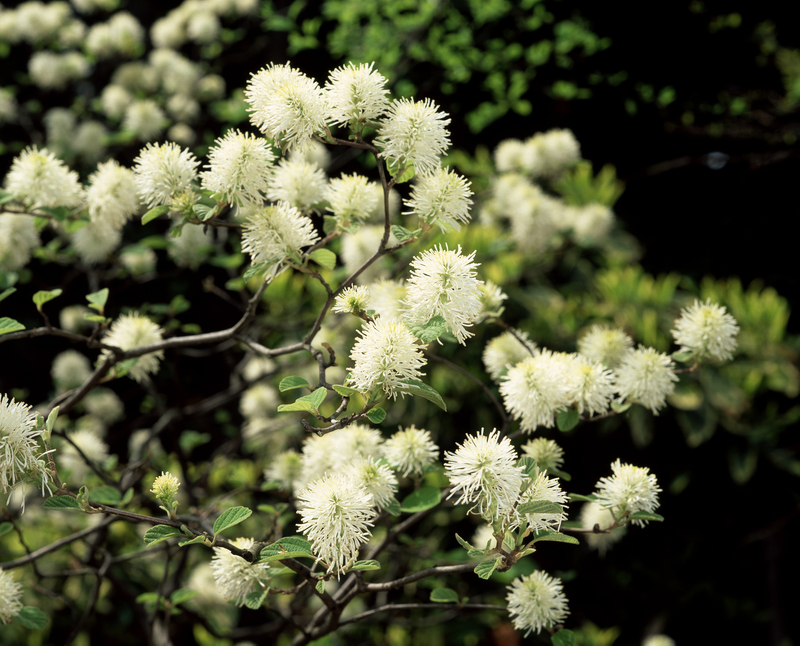How to Grow a Garden that Invites Children's Imagination
Posted on 23/08/2025
How to Grow a Garden that Invites Children's Imagination
In a world increasingly filled with screens and structured schedules, growing a children's imagination garden provides a magical escape, nurturing creativity, exploration, and learning. Gardens can be more than just spaces for flowers and vegetables--they can become vibrant landscapes for play, storytelling, and wonder. This comprehensive guide explores how to design and maintain a garden that inspires children's imagination, fosters curiosity, and encourages a lifelong love of nature.
Why Create a Garden for Children's Imagination?
Childhood is a time of wonder, discovery, and boundless creativity. Gardens that inspire children's imaginative play offer numerous developmental benefits, including:
- Encouraging creativity and storytelling through natural materials and whimsical design
- Boosting sensory experiences with colors, scents, and textures
- Promoting physical activity in a safe, stimulating environment
- Nurturing emotional wellbeing by connecting with the outdoors
- Developing scientific understanding through exploration and observation
Imaginative gardens can be as grand or as simple as space and budget allow, but their impact on childhood development is profound and lasting.

Key Elements of a Children's Imagination Garden
Designing a garden that fuels the imagination involves thoughtful planning and a touch of childlike wonder. Here are essential elements to grow a garden that invites children's curiosity and play:
Themed Zones and Storybook Corners
Divide your garden into special zones with unique themes that encourage imaginative play and storytelling. Some ideas include:
- Fairy or Gnome Gardens: Add miniature furniture, hidden doors, and whimsical houses nestled among the plants.
- Magical Forest: Plant small trees, ferns, and shade-loving plants to create a shaded, cozy woodland nook.
- Enchanted Castle Ruins: Use stonework, climbing vines, and arches to evoke ancient castles or secret hideouts.
- Dinosaur Dig: Scatter faux dinosaur bones and fossils in a sand or mulch patch for kids to discover and excavate.
- Story Nooks: Built-in benches surrounded by fragrant blooms make perfect settings for outdoor reading and storytelling sessions.
Sensory-rich Plant Choices
To stimulate children's senses, select plants that engage touch, smell, sound, and sight. Consider the following:
- Soft-leaved lamb's ear (Stachys byzantina) invites gentle stroking.
- Fragrant herbs like mint, lavender, and rosemary are perfect for sniffing and tasting (with supervision).
- Colorful blooms such as marigolds, sunflowers, and snapdragons attract pollinators and awe.
- Grasses and bamboo add rustling sound effects and movement in the wind.
- Edible plants like strawberries, cherry tomatoes, or sugar snap peas offer healthy snacking opportunities.
Child-centered plantings make the garden both inviting and educational, offering endless opportunities for interactive learning.
Playful Structures and Surprises
Adding whimsical structures and secret spaces transforms a garden into an adventure. Think beyond standard swingsets:
- Willow teepees or living playhouses crafted from flexible branches
- Secret paths of stepping stones winding between beds and trees
- Mini bridges across tiny streams or pebbled "rivers"
- Hidden alcoves for quiet reflection or solo play
- Tunnels of sunflowers or climbing beans for running, hiding, and giggling
These elements invite children to invent stories, play dress-up, and become explorers of their own fantastical worlds.
Designing a Child-friendly Imagination Garden: Step-by-Step
Ready to grow a garden that sparks children's imagination? Follow this detailed, step-by-step approach:
1. Involve Children From the Start
- Ask for input on themes, plants, and colors they'd enjoy.
- Encourage drawing garden plans and making wish lists.
- Visit other gardens or parks together for inspiration.
- Read stories about magical gardens or outdoor adventures to spark ideas.
Remember: The more kids contribute to the planning, the more connected they'll feel to the space.
2. Safety First
- Choose non-toxic plants. Avoid those known to be harmful if ingested or touched (e.g., foxglove, oleander).
- Avoid thorny or spiky plants in high-traffic areas.
- Use non-slip materials for paths and play areas.
- Install safe boundaries to prevent children from wandering where supervision is limited.
- Check for allergies before introducing new plants.
Creating a safe, secure garden space ensures that children can explore freely while minimizing risks.
3. Integrate Play and Learning
- Add interactive features, such as a butterfly house, insect hotel, or bird feeders to observe and nurture wildlife.
- Set up a digging patch where children can plant, dig, and hunt for worms.
- Include a weather station or sundial to encourage curiosity about science.
- Hang wind chimes, mirrors, or colorful mobiles in trees to captivate attention.
- Provide art materials outdoors for nature-inspired creations.
Incorporating educational opportunities makes your children's imagination garden a place for both fun and learning.
4. Choose Easy-to-Grow Plants
- Sunflowers sprout quickly and grow tall, delighting kids as they follow their progress daily.
- Sweet peas and nasturtiums for vivid color and edible flowers.
- Pumpkins bring fairy tale vibes ("Cinderella's carriage"!) and excitement during harvest time.
- Radishes and lettuce produce fast, helping young gardeners see quick results.
- Beans and peas can climb teepees or trellises, forming living tunnels and forts.
Selecting easy, rewarding plants encourages children to participate in gardening, enjoy hands-on learning, and see tangible results.
5. Incorporate Water Features
- Simple fountains or channels for the soothing sound of moving water.
- Tiny "ponds" made from shallow basins for floating leaves, toy boats, or observing pond insects.
- Mud kitchens with old pots and pans for endless messy fun.
Safe, shallow water features transform the garden into an enchanted play space for kids' imagination to thrive.
Maintaining and Evolving Your Children's Imagination Garden
Gardens that invite children's creativity are dynamic and ever-changing. Here's how to keep your magical space thriving year after year:
Make Memories through Seasonal Change
- Plant bulbs in autumn for springtime revelations.
- Sow annual seeds each year for ever-changing color.
- Include both evergreen and deciduous plants for year-round structure and interest.
- Celebrate garden milestones with special family picnics, harvest festivals, or craft days.
Engage Children in Care and Upkeep
- Assign age-appropriate garden tasks, such as watering, weeding, and harvesting.
- Allow kids to make choices about new plantings and decorations each season.
- Keep a garden journal or scrapbook to record observations, sketches, photos, and favorite memories.
By involving children in ongoing care, you reinforce their connection to nature, responsibility, and pride in "their" garden.
Creative Activities for Imaginative Garden Play
Once your magical children's garden is established, incorporate activities that enhance imaginative play and learning:
- Nature-inspired scavenger hunts for leaves, colors, bugs, or hidden fairy doors
- Themed garden parties with costumes, storytelling, and outdoor games
- DIY garden crafts like painted rocks, twig wands, or butterfly feeders
- Photography sessions for capturing the changing faces of the garden
- Outdoor puppet shows, performances, or story circles in garden nooks
These activities ignite wonder and deepen a child's sense of ownership and connection to the garden landscape.
Tips to Promote Imaginative Play in Your Garden
Maximize the magic and creativity your garden brings out in children with these practical tips:
- Offer open-ended materials: Provide items that can be used in multiple ways--logs, branches, pebbles, shells, and fabric scraps
- Rotate surprises: Periodically add new decorations, fairy houses, or natural treasures to keep kids exploring
- Nurture storytelling: Encourage kids to invent stories set in the garden, acting out adventures or writing them down
- Accommodate solo and group play: Create spaces for both active group games and quiet solo reflection
- Let go of perfection: Embrace a little wildness and kid-driven mess; the best imaginative gardens are living, evolving spaces

Gardening for All Ages and Abilities
Children's imagination gardens can be customized for children of all ages and abilities. Consider:
- Accessible raised beds for young children or those with mobility limitations
- Broad, even paths for safe exploration by toddlers or kids using mobility aids
- Clear signage with brightly colored plant labels or simple illustrations
- Sensory-friendly areas for children who are sensitive to noise, light, or touch
With thoughtful design, you ensure your imaginative garden experience is inclusive and welcoming for every child.
Conclusion: Cultivating Wonder Year after Year
Growing a garden that invites children's imagination is about so much more than plants. It's about cultivating joy, curiosity, resilience, and a sense of wonder that lasts a lifetime. Whether you have a sprawling backyard, a compact city plot, or even just a few containers on a patio, you can create a space where children's stories come to life and creativity flourishes.
Start today by gathering ideas as a family, mapping out your dream garden, and planting the seeds--both literal and figurative--of a magical outdoor adventure.
An imagination garden is one of the greatest gifts you can give a child, nurturing both their minds and their hearts for many seasons to come.
Latest Posts
A Journey to Herb Garden Excellence Begins Here
Shield Your Greenery: Expert Winter Plant Care Strategies
Craft a Carefree Garden with These 5 Budget Solutions



